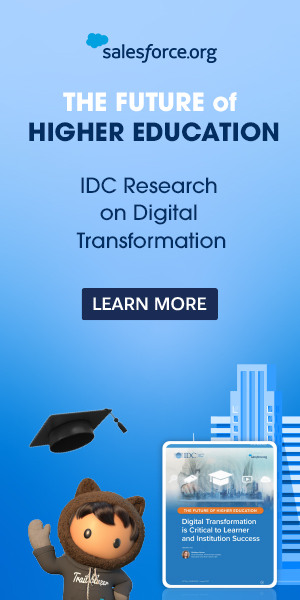
Technology can help personal tutors enhance student engagement in higher education
Maximising student success may be the one goal that is shared by all higher education institutions. Determining how that can be achieved, however, is an issue that does not invite unanimity. It resists easy solutions because even defining student success as a function of engagement, attainment, retention and well-being feels incomplete. The technological advancements that have facilitated a data-driven stewardship of the students’ campus experience – such as AI chatbots, 360-degree tracking and monitoring systems – afford university staff new measures of control, but what about the qualitative measures of student success?
Ben Walker, senior lecturer in academic continuing professional development at Manchester Metropolitan University and previously lead of the “Intervention for Success” project at the University of Lincoln that aimed to enhance interventions for HE students, recognises the difficulty in reaching definitive conclusions with regards student success, but insists that the importance of soft outcomes should not be overlooked in pursuit of a student success strategy. “There are research studies out there that try to measure increases in students’ confidence and self-esteem in the course of their life during a programme…isn’t that just as important?” he says. “It’s notoriously difficult as a researcher to try and come out with conclusive statements because everything that happens in a student’s life while at university [affects the student].”
Walker adds: “ There are multiple factors: every individual is a complex entity. At a strategic level, there needs to be more appreciation of those soft outcomes [and] how they link to the hard outcomes because we all know that on the ground those are really, really important.”
And the situation on the ground is growing ever more complicated.
The student body is growing larger and more diverse, which has ramifications for teaching and pastoral care. Walker recognises the pressures on teaching staff, especially those whose workload is split between research, teaching and tutoring. Often, he says, the tutoring is a distant third. Part of his remit at Manchester Metropolitan is to change that and to foster the idea of the tutor as a coach. But to do so involves removing the administrative burden that is placed on academics. This is where Walker sees the transformative potential of technological solutions such as the Salesforce Advisor Link. Developed by Salesforce.org, Salesforce Advisor Link offers tutors a personalised view of each of their students throughout their academic life by tracking and monitoring capability student engagement to flag potential issues before they arise. While he is cautious about seeing interventionism as the panacea to student success, fearing that a heavy-handed approach inhibits the sense of independence crucial to student development, Walker believes that Salesforce Advisor Link has the potential to foster more productive relationships between students and their tutors, enhance engagement and empower students to take the initiative over their campus experience.
“The focus does need to be on at-risk students but the focus also needs to be on fostering independence,” says Walker. “It needs to be about enabling students to take responsibility, so any system that you design is hopefully not just a kind of Big Brother monitoring system for staff but is a meaningful system for the student as well. I think that is the key thing [is] for students to be taking some responsibility over their own progress, their own engagement and be able to view and interact meaningfully in tutoring conversations by viewing those systems themselves, having a profile and seeing how they are doing…Co-constructing their targets and their goals with the tutor.”
In a 2019 Salesforce.org survey of Times Higher Education readers, student retention and engagement was prioritised over variables such as diversity, inclusion and well-being as indicators of student success. Is this a reflection of the data-driven era that HE is operating in? Perhaps. But Walker believes there is more to student success than capturing and measuring hard metrics, referencing Liz Thomas’ What works? Student retention & success programme report, which identified belonging as the starting point for student success. No matter how we define it, this sense of belonging, says Walker, falls under the rubric of well-being, and we ignore it at our peril.
Learn more about the Salesforce.org Education Cloud
Watch the on-demand webinar: The Future of Student Success and Advising



























